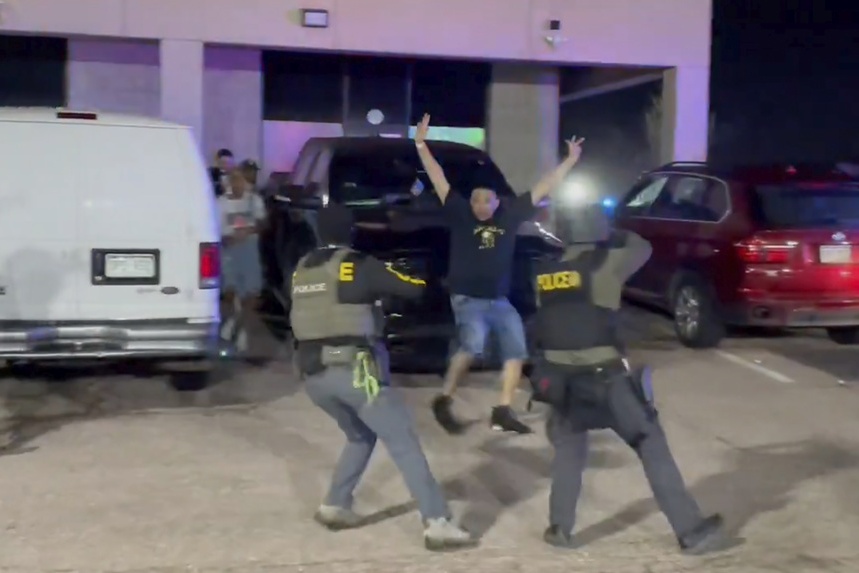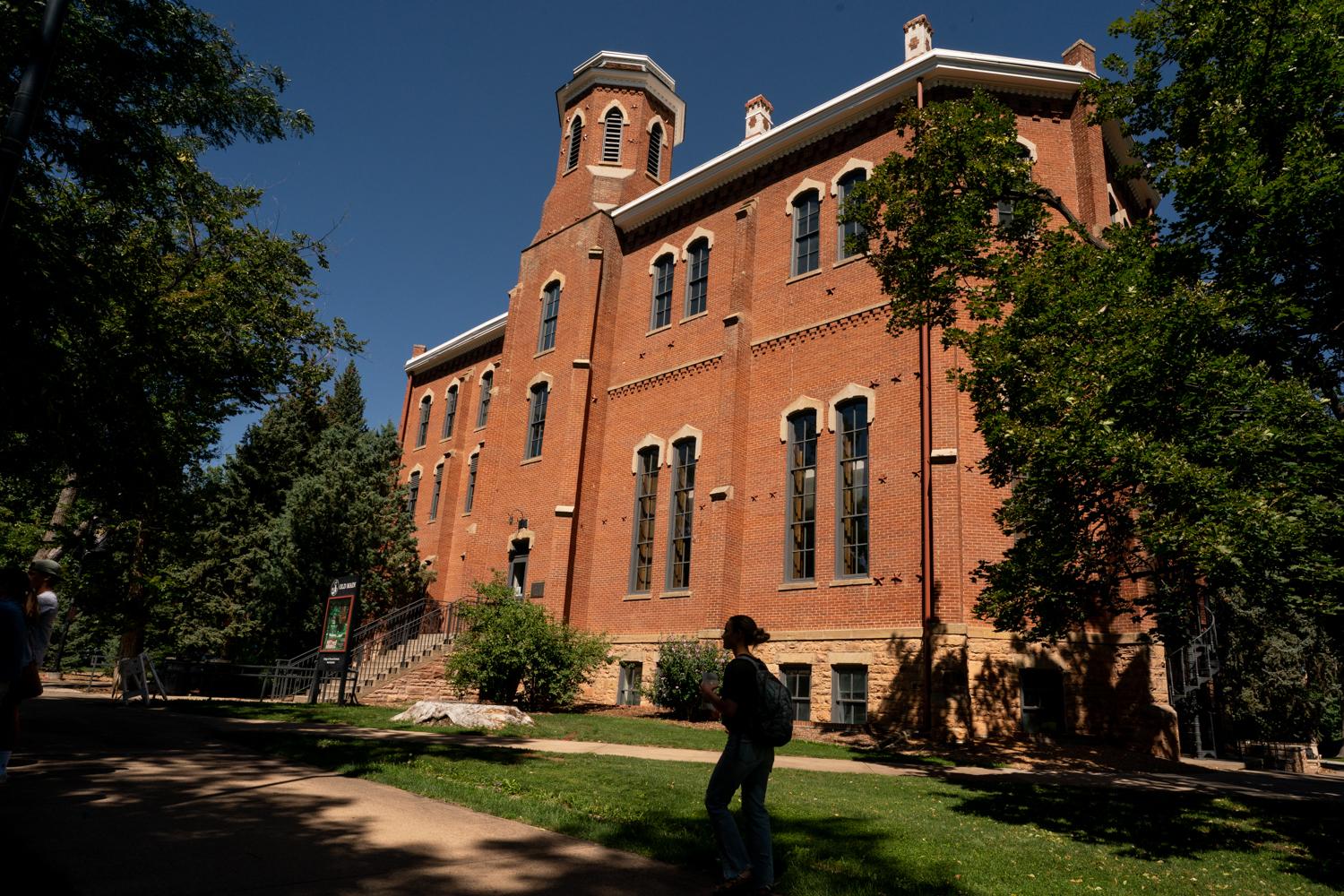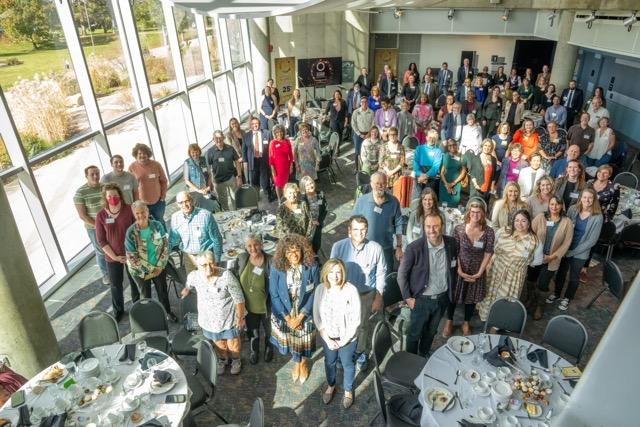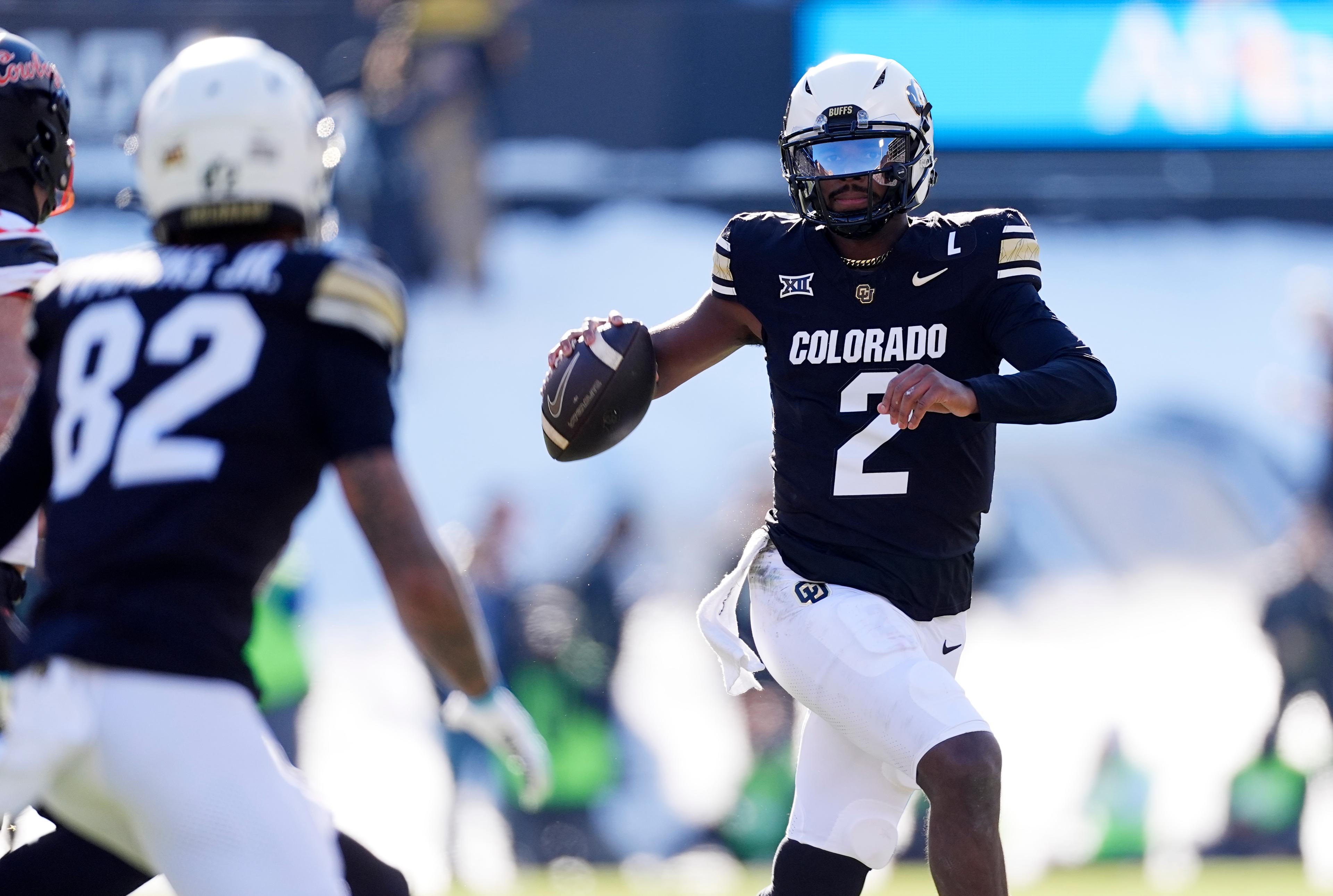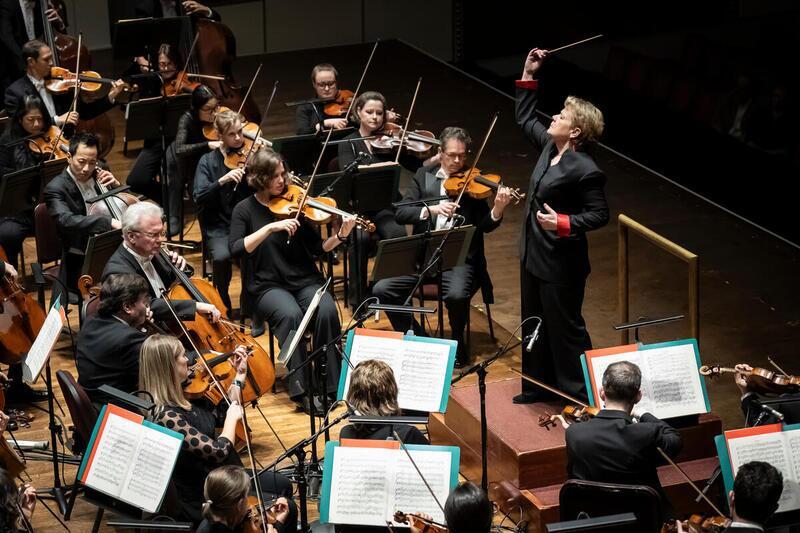
Conductor Marin Alsop is no stranger to making bold moves. As the first woman appointed to lead a major American orchestra, she had to be. She was named music director of the Baltimore Symphony Orchestra in 2005. Over her long career, she's led many of the world's great orchestras, including the Berlin Philharmonic last month.
But after President Trump made his own bold move in positioning himself as chairman of the Kennedy Center board, many performers reconsidered their own acts, while other artists in leadership roles decided to leave their positions.
Alsop kept her Kennedy Center performances with the National Symphony Orchestra recently because, she says, art is bigger than this moment and should be celebrated.
"Art is about the human spirit ... It's about the human condition," Alsop says. "Music, art — these are not partisan issues."
The work Alsop brought to the Kennedy Center seemed especially poignant. Composer Julia Wolfe's Her Story is a large-scale work that incorporates real-life letters and speeches from the fight for women's equality.
A letter from future first lady Abigail Adams to her husband, John Adams, in 1776 includes the line, "Remember all Men would be tyrants if they could." This message is interpolated into Wolfe's work, shouted from the stage by the 10 women of the Lorelei Ensemble.
NPR's Scott Simon joined Alsop at the Kennedy Center during rehearsals to talk about changes at the revered institution and the power of Wolfe's music.

This interview has been edited for length and clarity. To hear the broadcast version of this conversation, click the audio player at the top of this page.
Interview highlights
Scott Simon: You're presenting this work, Julia Wolfe's Her Story, at a time when President Trump has taken over the Kennedy Center and a lot of artists have refused to appear here. Renée Fleming resigned as artistic director. Shonda Rhimes has left the Kennedy Center board. Why are you going ahead with this performance?
Marin Alsop: I think it's really important, especially in this time, that we remember and celebrate the importance of art in our lives. Art is about the human spirit. It's about the human soul. It's about the human condition. And it also connects us. And it's bipartisan. Music, art — these are not partisan issues.
Simon: President Trump said no more drag shows or other anti-American propaganda at the Kennedy Center.
Alsop: I'm not really privy to sort of everything that's gone on behind the scenes, but I know that this is a wonderful orchestra. This is a wonderful performing arts center. And it's a place of inclusion, not exclusion. And there shouldn't be any kind of barriers for people. What is American? What is anti-American? I mean, this sounds like the 1950s to me. But I know that so many board members — previous board members — were incredibly generous, financially and with their support, with their time. And I hope that the president will be equally supportive.
Simon: Julia Wolfe's work ranges from a letter written by Abigail Adams to a speech by Sojourner Truth.
Alsop: These are the actual words that these women spoke or wrote. And you realize that when Abigail Adams is speaking this in 1776, and she's talking about how men really shouldn't have all the power because they will be tyrants, you're, like, "Oh, yeah, I'm reminded of the time we're living in." And Sojourner Truth was such an icon and, in so many ways, a real hero. So it's wonderful to hear these words.

Simon: You are always introduced as, "The first woman appointed to lead a major American orchestra." So how much has changed in your industry?
Alsop: Well, I have to say that we're making progress, but I have deep concerns that now that the world seems to be trying to backtrack, these opportunities will dissipate.
Simon: This is an immersive theater work. What are the challenges and special joys of doing that?
Alsop: This is a piece that features an ensemble of 10 women vocalists. And they begin the piece from the balcony. So they're really far away. They're amplified. And with the text, there's also a choreography and a direction to the piece. So women are always called the "un" word — you know, we're un-this, un-that, unmarried. So as they're speaking these words, the singers are holding up the signs so that the audience can also see it. And it's very emotional.
Simon: Why does the concert reach its climax with Rimsky-Korsakov's Scheherazade? It's a symphonic suite written in 1888.
Alsop: I was struggling with how I should pair this piece. And then I thought about the story of Scheherazade. This is the story of a woman who was able to weave stories so that the sultan didn't kill her. And ultimately, he ended up marrying her, falling in love with her. So it's all about the strength of a single woman and the difference that a single woman can make. And I thought that would be a perfect pairing.
Simon: What would you like to leave in people's minds, the audience-goers, as they leave?
Alsop: It's really the same thing I hope for at every concert, that when the audience leaves, they feel changed, whether they've been moved emotionally or whether they're thinking about women in history and the struggle to find equality, which, of course, we still struggle with now.
D. Parvaz edited this conversation.
Copyright © 2025 NPR
Transcript:
(SOUNDBITE OF MUSIC)
MARIN ALSOP: So in this particular piece, I have to have a lot of light on me because the orchestra is often in the dark, so they have to always see me.
SCOTT SIMON, HOST:
We're on stage at the Kennedy Center, Washington, D.C., with conductor Marin Alsop. As musicians and singers prepare for rehearsal, the maestra shows us her podium setup.
ALSOP: It's not in my pocket at the moment, but I have a little what they call a credit card metronome. The opening tempo is 120, which is about bah (ph), two, three, four. About there.
SIMON: She's conducting Julia Wolfe's "Her Story" and ending the performance with Rimsky-Korsakov's "Scheherazade." I begin by asking what she sees as the importance of presenting this work here and now.
ALSOP: I think it's so important that we're reminded of the intense progress that women have made throughout history and how hard-fought for it was and how hard-won it was. And as we see today in our own country, how quickly we can lose rights that we fought for, for so long.
SIMON: You touch on something that we have to ask. You know, you're presenting this work, Julia Wolfe's "Her Story," at a time when President Trump has taken over the Kennedy Center and a lot of artists have refused to appear here. Renee Fleming resigned as artistic director. Shonda Rhimes has left the Kennedy Center board. Why are you going ahead with this performance?
ALSOP: Well, I think it's really important, especially in this time that we remember and celebrate the importance of art in our lives. Art is about the human spirit. It's about the human soul. It's about the human condition. And it also connects us. And it's bipartisan. You know, music, art, these are not partisan issues.
SIMON: President Trump, of course, said, no more drag shows or other anti-American propaganda - speaking of this place.
ALSOP: I'm not really privy to sort of everything that's gone on behind the scenes, but I know that this is a wonderful orchestra. This is a wonderful performing arts center. And it's a place of inclusion, not exclusion. And there shouldn't be any kind of barriers for people. You know, what is American? What is anti-American? I mean, this is - it sounds like the 1950s, to me, again. But I know that so many board members, previous board members were incredibly generous financially and the - with their support, with their time. And I hope that the president will be equally supportive.
(SOUNDBITE OF MUSIC)
SIMON: Julia Wolfe's work ranges from a letter written by Abigail Adams to a speech by Sojourner Truth.
ALSOP: Yeah, these are the actual words that these women spoke or wrote. And you realize that, you know, when Abigail Adams is speaking this in 1776, and she's talking about how men really shouldn't have all the power because they will be tyrants. And you're, like, oh, yeah, I'm reminded of the time we're living in. And Sojourner Truth was such an icon and, in so many ways, a real hero. So it's wonderful to hear these words.
(SOUNDBITE OF ARCHIVED RECORDING)
LORELEI ENSEMBLE: (Yelling) Tyrants. If. They. Could. Tyrants. If. They. Could.
SIMON: You are always introduced as, quote, "the first woman appointed to lead a major American orchestra." So how much has changed in your industry, your art?
ALSOP: Well, I have to say that we're making progress, but I have deep concerns that now that the world seems to be trying to backtrack, that these opportunities will dissipate.
SIMON: This is an immersive theater work. What are the challenges and special joys of doing that?
ALSOP: This is a piece that features an ensemble of 10 women vocalists. And they begin the piece from the balcony. So they're really far away. They're amplified. And with the text, there's also a choreography and a direction to the piece. So, you know, women are always called the U-N-word. You know, we're un-this, un-that, unmarried.
(SOUNDBITE OF ARCHIVED RECORDING)
LORELEI ENSEMBLE: (Singing) Unmarried. Unmarried...
ALSOP: So as they're speaking these words, they're holding up the signs so that the audience can also see it. And it's very emotional.
(SOUNDBITE OF ARCHIVED RECORDING)
LORELEI ENSEMBLE: (Singing).
SIMON: Why does the work reach its climax with "Scheherazade"? It's a symphonic suite written in 1888, I believe.
ALSOP: I was struggling what should I pair this piece with, you know? It's a little bit hard to think about it. And then, of course, I thought about the story of Scheherazade. And this is the story of a woman who was able to weave stories so that the sultan didn't kill her. And ultimately, he ended up marrying her, falling in love with her. So it's all about, I think, the strength of a single woman and the difference that a single woman can make. And I thought that would be a perfect pairing.
(SOUNDBITE OF MUSIC)
SIMON: What would you like to dance in people's minds, the audience-goers, as they leave?
ALSOP: It's really the same thing I hope for at every concert, that when the audience leaves, they feel changed, whether they've been moved emotionally or whether they're thinking about women in history and the struggle to find equality, which, of course, we still struggle with now.
(SOUNDBITE OF ARCHIVED RECORDING)
LORELEI ENSEMBLE: (Singing) Your voice. Your voice.
SIMON: I don't know. I wish I knew a better way to phrase this.
ALSOP: Yeah.
SIMON: Should a man conduct this work?
ALSOP: Many men have conducted this work already, and I think they did a pretty good job. So...
SIMON: For a man.
ALSOP: For a man. You know, I mean - but listen, I like men, and I'm all about letting them do things now and then.
SIMON: (Laughter) Like to encourage them.
ALSOP: (Laughter).
SIMON: Maestra, thank you. Talk to you soon - again.
ALSOP: Great to see you in person. That's...
SIMON: Yeah.
ALSOP: ...Exciting.
SIMON: That's really true. Thank you.
(SOUNDBITE OF ARCHIVED RECORDING)
LORELEI ENSEMBLE: (Singing) Unfavorable, not so generous, unfavorable (ph).
SIMON: Marin Alsop, the National Symphony - and the National Symphony Orchestra and the Lorelei Ensemble perform Julia Wolfe's "Her Story" tonight at the Kennedy Center in Washington, D.C.
(SOUNDBITE OF ARCHIVED RECORDING)
LORELEI ENSEMBLE: (Singing) Unfavorable, not so generous, unfavorable, not so generous (ph).

